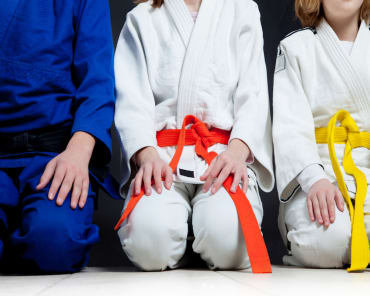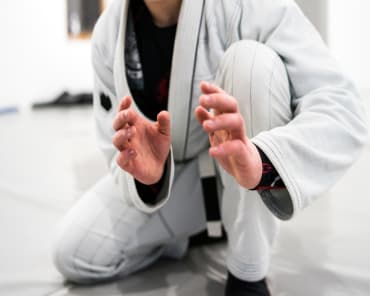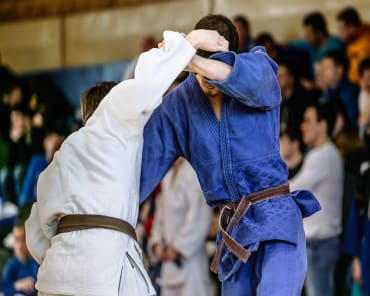Training in Brazilian Jiu-Jitsu (BJJ) can be an incredibly rewarding experience, but it also comes with its share of challenges. Frustration often arises due to setbacks, injuries, or the slow pace of progress. Understanding how to navigate these hurdles is crucial for any practitioner, as it allows you to embrace the journey rather than become disheartened by obstacles. Here are some insights on how to handle frustration in Jiu-Jitsu effectively.
1. Recognize that Frustration is Normal
The first step in dealing with frustration is acknowledging that it is a normal part of the learning process. Every martial artist, regardless of their level, encounters moments of doubt and struggle. Whether you’re a beginner just learning the fundamentals or an experienced practitioner refining advanced techniques, everyone experiences plateaus, setbacks, or injuries at some point.
Understanding that frustration is a common experience in Jiu-Jitsu can help normalize your feelings and alleviate the pressure to perform perfectly. Instead of viewing frustration as a negative emotion, see it as an essential part of growth. Embracing this mindset can help you stay positive and focused on your long-term goals.
2. Set Realistic Expectations
Setting realistic expectations can significantly reduce feelings of frustration. Jiu-Jitsu is a complex art that requires time and dedication to master. Progress can often feel slow, especially when comparing yourself to others in class. Remember that everyone’s journey is different, and what works for one person may not work for you.
Break down your training goals into manageable milestones. Instead of focusing on achieving a specific belt rank or mastering a particular technique, aim for smaller, achievable objectives, like perfecting a guard pass or improving your positional control. Celebrating small victories along the way will help you appreciate your progress and stay motivated, even during challenging times.
3. Embrace the Learning Process
One of the most valuable lessons in Jiu-Jitsu is to embrace the learning process, including the mistakes and failures that come with it. Each setback is an opportunity to learn and improve. Instead of dwelling on your frustrations, analyze what went wrong and how you can address it in the future.
When dealing with injuries or technical difficulties, consider them as part of your Jiu-Jitsu journey rather than insurmountable obstacles. Focus on what you can control—such as asking your instructor for guidance, drilling specific techniques, or studying videos to reinforce your understanding. This proactive approach shifts your focus from what’s causing frustration to what you can actively improve.
4. Practice Mindfulness and Self-Compassion
Practicing mindfulness can be a powerful tool for managing frustration. Techniques like deep breathing, meditation, or visualization can help you stay present during your training sessions, allowing you to focus on the moment instead of worrying about your performance or comparing yourself to others.
Self-compassion is equally essential. Treat yourself with kindness and understanding during challenging times. Acknowledge that everyone struggles and that it’s okay to feel frustrated. Instead of being harsh on yourself, remind yourself of your progress and the hard work you’ve put into your training. This positive self-talk can help you stay motivated and focused on the bigger picture.
5. Seek Support from Your Training Partners and Instructors
Your training partners and instructors can be invaluable sources of support when you’re feeling frustrated. Don’t hesitate to share your feelings with them; they may have experienced similar challenges and can offer insights or encouragement. Sometimes, simply talking about your frustrations can lighten the load and help you gain a new perspective.
Additionally, consider asking for feedback from your instructors or more experienced training partners. They can provide guidance on areas to focus on or techniques to refine, helping you feel more empowered and confident in your abilities.
6. Take Breaks When Needed
If frustration becomes overwhelming, it may be beneficial to take a step back and give yourself a break. This doesn’t mean quitting Jiu-Jitsu altogether; rather, it allows you to recharge and regain your motivation. Engaging in other physical activities, spending time with friends and family, or even exploring different aspects of martial arts can help refresh your mindset.
Taking breaks can also provide time for reflection. Use this time to revisit your goals, reassess your training strategies, and reignite your passion for Jiu-Jitsu. When you return to the mats, you may find a renewed sense of purpose and enthusiasm.
Conclusion
Frustration in Jiu-Jitsu is a natural part of the journey, but how you respond to it can make all the difference in your growth as a practitioner. By recognizing that setbacks and slow progress are normal, setting realistic expectations, embracing the learning process, practicing mindfulness, seeking support, and allowing yourself to take breaks when needed, you can turn frustration into an opportunity for growth and resilience.
Jiu-Jitsu is not just about mastering techniques; it’s also about developing mental fortitude and learning to navigate challenges. Embrace the journey, and remember that every obstacle you encounter is an integral part of your evolution as a martial artist. With patience, persistence, and a positive mindset, you will continue to grow, both on and off the mat.






